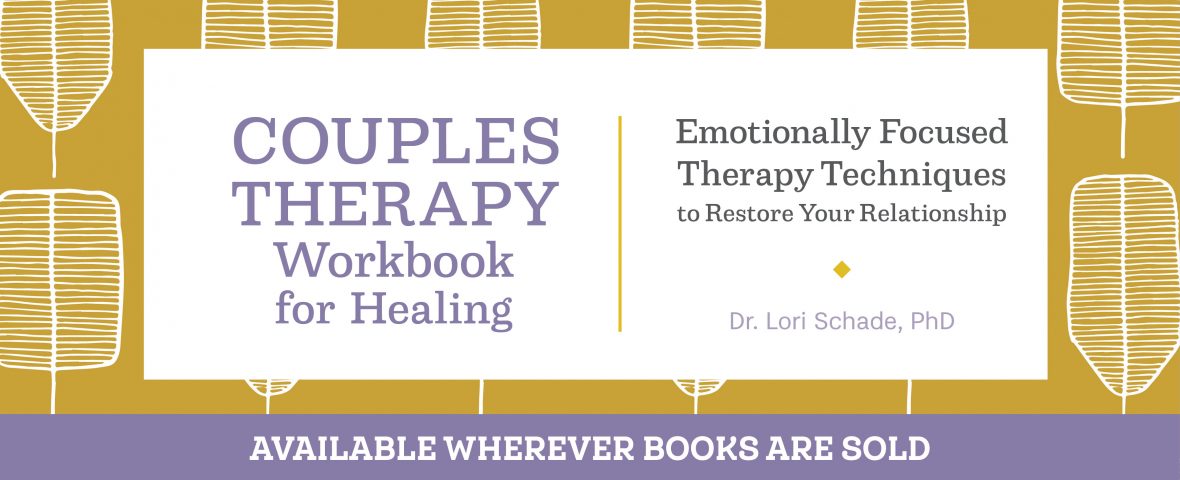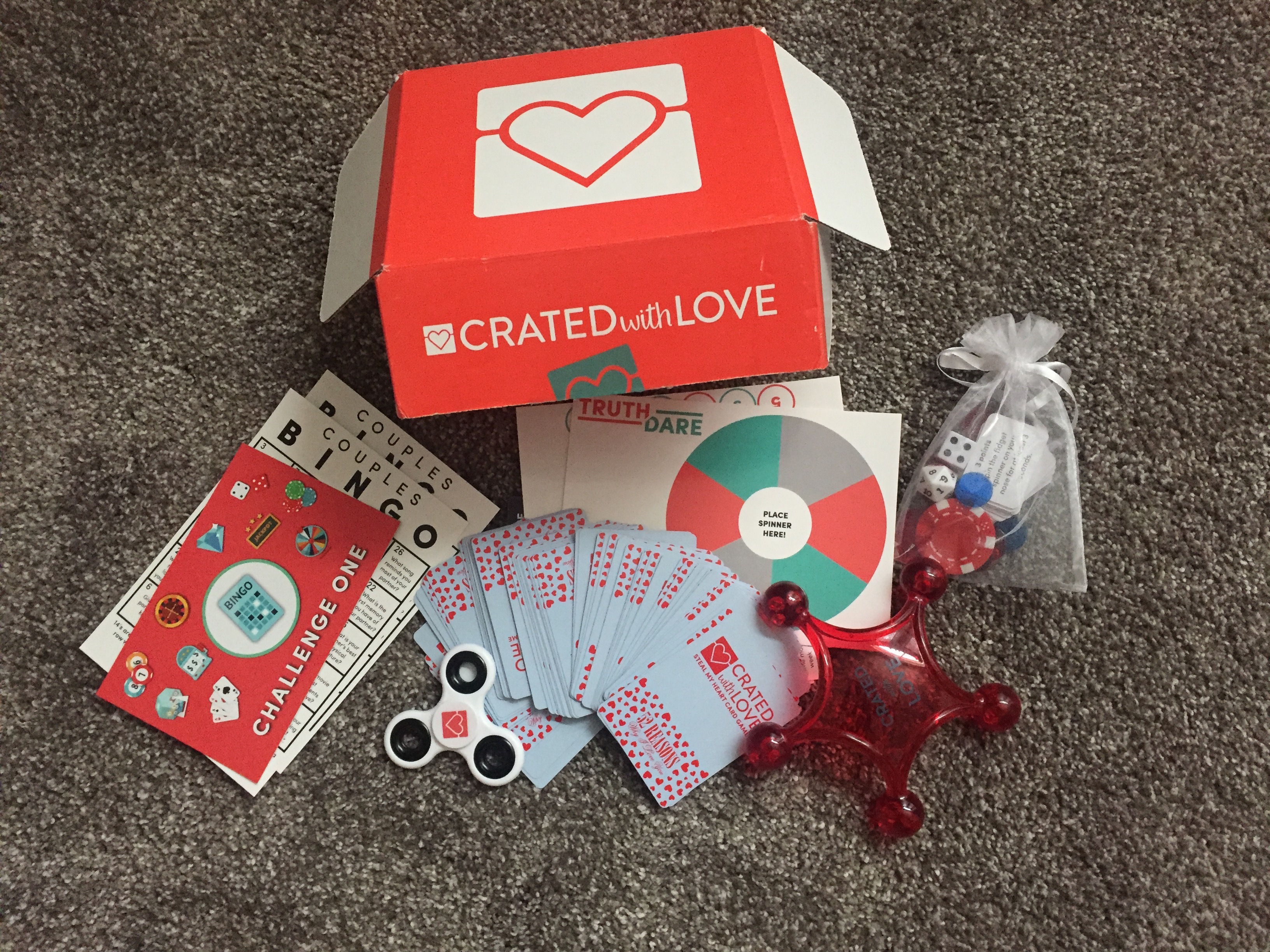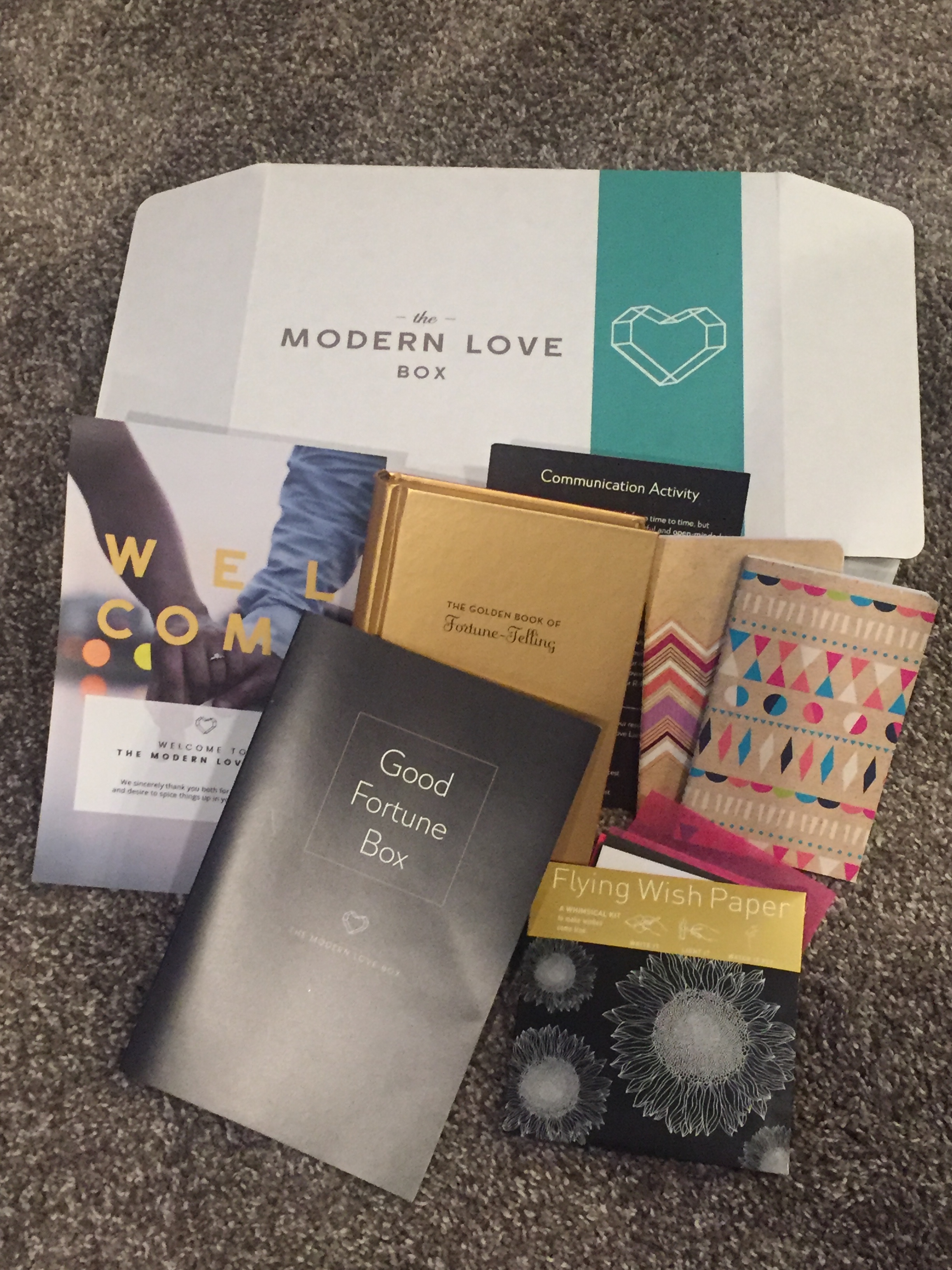 See if you can finish this sentence: I love you, but I’m not…………
See if you can finish this sentence: I love you, but I’m not…………
Right…I love you, but I’m not in love with you.
It’s probably no surprise that I hear this sentence all the time in couples therapy. It’s not my favorite thing to hear, because I know it’s what people say when they aren’t “feeling it,” for their spouses, and they want to “feel it,” to stay married.
The Good News and the Bad News About Marriage Today
Long-term romantic relationships are a salad of chemistry, passion, friendship, emotional connection, expectations, commitment, forgiveness, acceptance, effort, benevolence, support and security, among other things……sprinkled with pain and joy.
Eli Finkel, a researcher at Northwestern University who is releasing a book next month titled The All or Nothing Marriage: How the Best Marriages Work, has pointed out that people in western cultures expect more from their marriages than ever. Higher expectations aren’t all bad. Finkel reports that right now, it seems that we have the best marriages and the worst marriages. In other words, people in average marriages are reporting lower marital happiness and stability than in times past, but the best marriages are linked with higher marital quality and individual well-being than before.
Basically, spouses today want the whole enchilada. We are more social disconnected than ever and rely on our spouses to fill roles that may previously have been filled by other people. We are connected to higher numbers of people more quickly maybe, but in a way that I call a mile wide and an inch deep…..the relationships are less meaningful, or at least serve different functions. That’s why in marriage most people want a best friend, a passionate partner, an economic supporter, and, Finkel reports, someone to help us self-actualize. We want our partners to help us achieve our highest individual psychological needs. Read more about it here.
Now, take all those expectations, wrap them in a red heart-shaped package called “love,” and you have a marriage therapist’s worst nightmare.
We Need Better Words for Love
The English language is sorely lacking in nuanced definitions of love. We use that word to express affection for any person, place or thing. We love our spouses, we love our children, we love our dogs, we love our houses, and we love our cars. Even French, la langue d’amour, is limited in expression. If we don’t have good ways to acknowledge and language the nuances of love, there is more room for personal interpretation and judgment….and disappointment.
Several other languages, such as Sanskrit and Persian, offer scores of terms to describe specific types of love. My favorite set of words are those available in Arabic, which includes terms for various states and relationship stages. My limited understanding is that the construction of the language, structured with common roots, allows for words to be linked, which can increase nuance. Love can be expressed in distinctive stages and states, including attraction, amusement, passion, preoccupation, infatuation, adulation, heartburn, longing, excruciating pain, submissiveness, friendliness, unification, fervor, and madness.
There are additional expressions for romantic affection as well. I was fascinated with Ya’aburnee, which apparently means “you bury me,” and alludes to the hope that one die before one’s lover, because life would be too painful without them. So tragically romantic!
It’s interesting to me that such rich descriptions of love exist in cultures where arranged marriage happens at a higher rate than western cultures. It makes me wonder about how we interpret “love.” In English, love is essentially a language monomial, defined by four letters, but a language polynomial when it comes to all the varied applications. Preoccupation, infatuation and adulation suggest something quite different from unification, and if all of those states were explicitly under the “love,” umbrella in English, people may not be as disappointed when feelings shift long-term.
Even though love is complex, we can influence our long-term feelings
The reason I’m droning on about this is that largely, whether one is “in love,” or not has to do with subjective interpretation, and is influenced by expectations. In other words, we don’t “fall out of love,” with our kids. We may not always have warm fuzzies toward them, but most of us recognize a sense of commitment and obligation which then fuel us to actions to increase love toward our offspring. We are proactive in managing our negative feelings toward them in order to be available, stable attachment figures.
It’s only in romantic love that we use the term “falling,” which implies a sense of helplessness about whom we love, or for how long. However, we can use the same heuristic in marriage that we use in parenting, by searching for actions to influence our feelings.
Over the long-term, the reality is that marital satisfaction waxes and wanes. There are behaviors that can influence any of the expectations for love. Even physical attraction can be influenced by engaging in various activities in marriage. The way we talk to ourselves about our partners also influences our feelings. We may not “feel it,” in immediate large shifts, but we can certainly encourage growth over time. Another little Arabic love language fun fact is that the word “hubb,” for love comes from the same root as the word “seed,” implying growth potential.
As Easy as an Internet Search
In an internet’s search amount of time, you can find myriad ideas for activities designed to increase love toward a spouse. In fact, this blog is full of them. Imagine if people spent as much time researching that as they do for pornography….
“I Love You” is Still Powerful
Even though the English language is limited, don’t underestimate the power of the three little words.
When my husband and I got married, we used to go to my father-in-law’s brother and wife’s home for Sunday dinner. He was a retired, shrewd Hollywood attorney who had retained his sharp wit. One night, his wife decided to advise all of the newlyweds at her home about how to stay married long-term. She said, “Now kids, this is important for staying married: Every single day, when my husband and I wake up, he says those three little words…every….single….day…….and what are those three words, honey?” she nodded at her husband. On queue, with a mischievous grin, he started, “Go to…”
“OH HUSH!” his wife blurted, sparing us from his expletive, “You know that’s not it.” She turned back to us, “He says, ‘I love you,’ every single day, and it’s a reminder that we value our marriage. You remember that. Don’t ever forget to tell each other you love each other often.” We nodded as we stifled our laughter.
Since “love,” is so general in English, and “I love you,” can become so stale so quickly, it might be fun to look up alternative terms in foreign languages and see if you can share you feelings with more precision. I already texted one Japanese term to my husband today that doesn’t translate directly to English.
“I Love You,” as the Ultimate Reassurance
Over the years, my husband and I have had the opportunity to experience many stressful life events together. In fact, we had a lot of practice with stress during our first year of marriage. I had a complete meltdown at one point, certain that I had ruined my life and created an enduring mess for myself and him by association. I was sobbing about everything that was alarming me. I went on and on and on while my husband just listened. It was verbal vomiting at its worst. Looking back, he must have been totally freaked out, but he just sat with me. He said nothing.
When my tirade (cryrade) was over and he didn’t respond, I asked, “Well?” and he answered, “Well?” and I repeated “Well?” and he answered, “Well?” and I repeated, “Well?” Silence. Then, he took my chin in his hand and looked in my eyes and said, “Well, I still love you. I will always love you,” Which made me cry all over again for his enduring kindness. For some reason, even though all my problems weren’t solved, it was adequately comforting, and I felt reassured that everything would be ok.
He has repeated the same comforting words at various time points in our marriage when I have been at the end of my rope for one reason or another.
It’s one of the constants I can always count on if I’m beyond distressed.
And as a constant, “Love,” in the English language works just fine.
Photo credit: Copyright: <a href=’https://www.123rf.com/profile_studiostoks’>studiostoks / 123RF Stock Photo</a>





 Last year while my husband and I were vacationing with another couple, I had one of those vicarious déjà vu moments. My friend, her husband and I were waiting for an elevator, and as it opened, I smelled something sulfurous, reminiscent of a diesel engine. Although it smelled vaguely of machinery to me, as the elevator doors closed, my friend looked at her husband and accused, “Something doesn’t smell good. Is that you?” I laughed out loud, because while I thought the smell was emitted from something on our ship, I could imagine saying the same thing to my husband.
Last year while my husband and I were vacationing with another couple, I had one of those vicarious déjà vu moments. My friend, her husband and I were waiting for an elevator, and as it opened, I smelled something sulfurous, reminiscent of a diesel engine. Although it smelled vaguely of machinery to me, as the elevator doors closed, my friend looked at her husband and accused, “Something doesn’t smell good. Is that you?” I laughed out loud, because while I thought the smell was emitted from something on our ship, I could imagine saying the same thing to my husband.

 I’m writing about another excellent marriage date night subscription box company:
I’m writing about another excellent marriage date night subscription box company:  While I was shuffling through some accumulated text messages on my phone the other day, one in particular caught my attention. I saw a familiar tagline on one of my husband’s messages that read, “sent with confetti.” As I touched the message, a “party In a text,” emerged, showering the words, “I’m so in love with you,” with a pop and an audible swoosh of virtual confetti. I smiled and replayed the message and noticed that as I did, I added to my personal reserve of positive feelings for my husband. One of the things he does well is find creative ways to send positive and romantic text messages on most days of the week, and one of his favorite effects is the confetti option, festooning his declarations with bright shards of color.
While I was shuffling through some accumulated text messages on my phone the other day, one in particular caught my attention. I saw a familiar tagline on one of my husband’s messages that read, “sent with confetti.” As I touched the message, a “party In a text,” emerged, showering the words, “I’m so in love with you,” with a pop and an audible swoosh of virtual confetti. I smiled and replayed the message and noticed that as I did, I added to my personal reserve of positive feelings for my husband. One of the things he does well is find creative ways to send positive and romantic text messages on most days of the week, and one of his favorite effects is the confetti option, festooning his declarations with bright shards of color. See if you can finish this sentence: I love you, but I’m not…………
See if you can finish this sentence: I love you, but I’m not…………